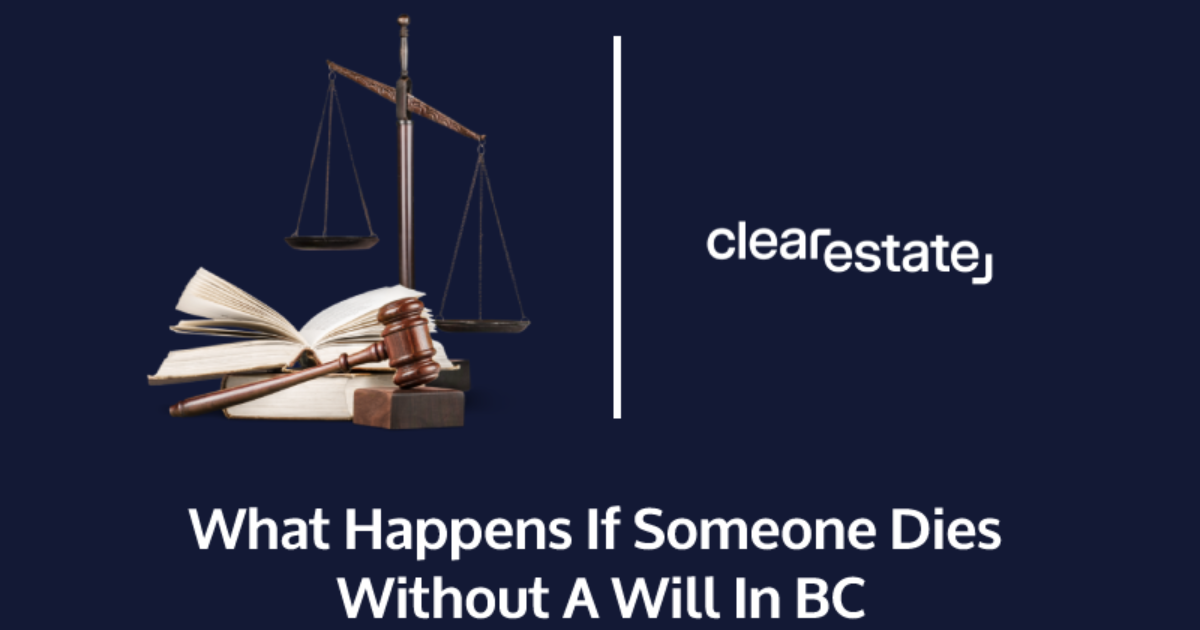Explore web search results related to this domain and discover relevant information.

Disclaimers can be a handy estate planning tool, where you add conditions in your will if a beneficiary declines their inheritance. Declining an inheritance may seem like an unusual move. So, if you decide to proceed, you can use a qualified disclaimer to refuse an inheritance. But why would you? The following are some of the most common reasons why you may not ...
Disclaimers can be a handy estate planning tool, where you add conditions in your will if a beneficiary declines their inheritance. Declining an inheritance may seem like an unusual move. So, if you decide to proceed, you can use a qualified disclaimer to refuse an inheritance. But why would you? The following are some of the most common reasons why you may not want to accept one.Disclaiming may make sense if you are already heavily exposed to income and estate taxes, according to Keith Atneosen, principal and family business advisor at Freedom Summit. Some common reasons why you would disclaim an inheritance include: You want someone else to benefit. You can reject the inheritance if you want someone else, including a sibling, to take possession of the assets instead. You're already financially stable. You may not need the assets or money from an inheritance because of your financial situation.You simply may not want the inheritance. This may be for personal reasons, which is very valid. Large estates are subject to the federal estate tax. This tax only applies to fortunes in the double digit millions, and the exact threshold changes with inflation every year.Additionally, you'll have no power to decide where the inheritance goes after you decline it. The assets are passed down to the next beneficiary if one is listed in the deceased's will. If there is no beneficiary, they are passed on to the estate.

State laws called "intestate succession laws" control who inherits property if no will exists. Learn what to expect if a deceased person has not left a will.
State laws set out a list of people who are eligible to fill the executor role when there is no will. If a probate court proceeding is necessary, the court will choose someone based on that priority list. Most states make the surviving spouse or registered domestic partner, if any, the first choice. Adult children are usually next on the list, followed by other family members. (If you've been chosen to serve as executor of an estate, see Should You Accept the Job of Executor to Settle an Estate?)In the rare event that no relatives can be found, the state takes the assets. ... Under intestate succession, the members of a class generally will get equal shares. If Ron dies with an estate worth $5 million and five living children, each child would receive $1 million.real estate or vehicles held with a transfer-on-death (TOD) deed or transfer-on-death vehicle title. Every state has "intestate succession" laws that parcel out property to the deceased person's closest relatives when there's no will.(Learn more about relatives' rights to claim parts of an estate in Inheritance Rights.) To find out the rules in your specific state, see Intestate Succession. Intestate succession laws refer to groups of people such as "children" and "issue." You might think you know just what the term "children" means, but don't be too sure until you check your state's laws. It's not always obvious.

This advice applies to England. See advice for See advice for Northern Ireland, See advice for Scotland, See advice for Wales · When a person dies without leaving a will, their estate has to be shared out according to certain rules.
This leaves an estate of £28,000 - Heather would get £14,000 and Selma would get £14,000. ... if the person who died had a married or civil partner who’s still alive - sometimes called a ‘surviving partner’ · All children of the person who died inherit an equal amount. It doesn’t matter who their other parent is. A child can inherit whether their parents were ever married or not.A child inherits the other half of the remaining estate. If the person who died had more than 1 child, this amount will be shared equally between them. ... Alan and Grace were married and have two children, Tim and Annie. Alan and Grace get divorced. Alan then has a child, Mark, with his new partner Beata. Alan and Beata don’t marry. Alan dies. Grace does not inherit under the intestacy rules because she’s divorced from Alan.This depends on how people were related to the person who died and how much the estate is worth. Check who can inherit if someone dies without a will on GOV.UK. If there are no surviving relatives who can inherit under the rules of intestacy, the estate passes to the Crown.The Treasury Solicitor is then responsible for dealing with the estate. The Crown can make grants from the estate but doesn’t have to agree to them. If you’re not a surviving relative, but you believe you have a good reason to apply for a grant, you’ll need legal advice.

Paul W. Norris ... Find Your Next Job ! ... Litigation Associate - Washington, D.C. ... Estate vs.
Additionally, accounts which are titled only in the name of the Decedent without a right of survivorship, insurance policies which are similarly situated, or other investment vehicles which contain no beneficiary designation, could likewise be considered assets of the Estate which pass under the Will.Assets which are considered non-probate are assets which pass outside of the Estate. These may be joint accounts with a right of survivorship which pass to the remaining account holder upon the death of one of the parties. Further, most residences are titled as joint tenants with the right of survivorship whereby the residence passes to the remaining surviving member upon the death of the other.Obviously, if a house is owned solely by one person than it can pass to the Estate. Other common forms of non-probate assets could be insurance policies where a specific beneficiary is named, as well as IRA’s or other investment vehicles whereby beneficiaries of the accounts are named.When preparing an accounting for an Estate, it is important that the Executor and their counsel know whether assets are classified as probate or non-probate due to the tax consequences which may result therefrom. It is a bright line rule that if an asset is named under a Last Will and Testament and there is no beneficiary designation with regard to the asset, than it is a probate asset.
State laws called "intestate succession laws" control who inherits property if no will exists. Learn what to expect if a deceased person has not left a will.
State laws set out a list of people who are eligible to fill the executor role when there is no will. If a probate court proceeding is necessary, the court will choose someone based on that priority list. Most states make the surviving spouse or registered domestic partner, if any, the first choice. Adult children are usually next on the list, followed by other family members. (If you've been chosen to serve as executor of an estate, see Should You Accept the Job of Executor to Settle an Estate?)In the rare event that no relatives can be found, the state takes the assets. ... Under intestate succession, the members of a class generally will get equal shares. If Ron dies with an estate worth $5 million and five living children, each child would receive $1 million.real estate or vehicles held with a transfer-on-death (TOD) deed or transfer-on-death vehicle title. Every state has "intestate succession" laws that parcel out property to the deceased person's closest relatives when there's no will.(Learn more about relatives' rights to claim parts of an estate in Inheritance Rights.) To find out the rules in your specific state, see Intestate Succession. Intestate succession laws refer to groups of people such as "children" and "issue." You might think you know just what the term "children" means, but don't be too sure until you check your state's laws. It's not always obvious.

So here is the bottom line: Estate assets will pass under the terms of your will, but they may include less than you think they do. Non-estate assets pass under a variety of other agreements and arrangements. Your superannuation which may be significant is a non-estate asset so be very careful.
The attorneys at Owen Hodge Lawyers would be happy to help you craft an estate plan or review an existing estate plan to ensure that your assets will pass as you intend on your death. Please call us to schedule a consultation at 1800 770 780. We are always ready to help you. ENQUIRE NOWIf you do not fully appreciate the difference between estate and non-estate assets, your estate plan may fail to pass ownership of your assets as you intend at the time of your death.Your brother dies, and under the terms of his will, leaves his interest in the farm equally to his 16 children. You will continue to own your half interest as a tenant in common with each of his children who will own a 1/32 interest. Tenancy in common can lead to some famously messy real estate problems, but its impact is not limited to land.Certain insurance policies where any proceeds are not paid to your executor/estate.

If there’s a will, then that person is typically named in the will as the executor. If there’s no will, then one of the heirs typically gets appointed to a position referred to as the “administrator.” This is the person in charge of handling your estate.
Either they have nothing, or every asset has been placed in a trust or has some other form of ownership that doesn’t require probate (such as a bank account with a named beneficiary or real estate owned with another as joint tenants with rights of survivorship).But certain property that does direct who comes into ownership upon your death is not considered individually owned and instead passes to the person specifically designated. The following types of property are ... A joint bank account held by two or more people passes to the survivor. Real estate held as “joint tenants with rights of survivorship” passes to the surviving owner.If you aren’t married when you die (or if your spouse is disqualified from inheriting) but you leave children, then your children take equal shares of your estate. Children of predeceased children (grandchildren) step up to share as well. If there is more than one predeceased child leaving children, then all grandchildren inherit equally. No spouse nor kids?The estate is still split equally between the maternal and paternal sides, so there might be one maternal heir who gets 50% and multiple paternal heirs who each must share the other 50%. Your heirs could be anyone down to first cousins once removed—the great-grandchildren of your grandparents (your cousins’ kids)—but this is very rare. Even more rare is if you have no heirs, in which case your property escheats (ownership reverts) to New York State.
In such situations, British Columbia's ... to outcomes that may not reflect the true wishes of the deceased. In this comprehensive guide, we delve into the repercussions of dying without a will in BC and the inheritance laws as according to the Wills, Estates, and Succession Act, ...
In such situations, British Columbia's intestate laws step in to dictate the distribution of assets, potentially leading to outcomes that may not reflect the true wishes of the deceased. In this comprehensive guide, we delve into the repercussions of dying without a will in BC and the inheritance laws as according to the Wills, Estates, and Succession Act, S.B.C.In British Columbia, intestate succession is governed by the Wills, Estates and Succession Act (WESA), S.B.C. 2009, c. 13. According to Section 25 of WESA, the standard asset distribution scheme will apply when there is no will, as well as when a will is "silent on the status" of a part of the estate (partial intestacy).The specific share of the estate each party is entitled to depends on the presence and number of these relatives. If no eligible relatives can be found, the estate will "escheat" to the provincial government, meaning the government will be entitled to the deceased's assets.When an individual dies intestate and leaves behind a spouse (which includes married people and those living in a "marriage-like relationship" for at least two years) but no descendants (children, grandchildren, etc.), according to the Wills, Estates, and Succession Act (WESA), the spouse is entitled to the entirety of the estate.

196 votes, 88 comments. My mother died last November in a nursing home. She has had alzheimer's for 12 years, and has only had SSA income and her…
I had acted as her personal representative while alive, filing taxes yearly - she hasn't owed anything in 15 years, and likely won't now. However, she died penniless and without a will. After going through the process of being the executor of my father's insolvent estate, all it did was cause me headaches and cost me money.It will cost me several hours of paperwork and about $350 to file a small voluntary estate administration with the state where she died, which will legally tie me as responsible if anything unknown comes up. I also cannot access her SSA account, Medicaid account, or any other accounts currently because I am no longer her legal representative - my Power of Attorney ended when she died.Everything I look at online seems to assume there HAS to be an executor or personal representative and there MUST be an estate. This is nonsense, as I'm sure many people die alone or estranged. I feel odd just letting it go, but I'm considering it.You don't need to worry about the process if no one steps up. The court will handle it. ... The state steps up. ... When my stepfather was an attorney, this was a significant part of his practice - the court would assign him to probate estates where no executor stepped up.

Your choice. Your plan. Your life. Personal planning is about planning for incapacity, end-of-life and other support needs. Nidus is a vital resource for Representation Agreements, free forms and the secure Nidus Registry.
The contents of the decedent's estate and whether they had a will determine the type of representative appointed by the court (as well as the letters certifying the appointment). In limited circumstances, an heir or payer of funeral expenses can submit a claim if there is no court-appointed ...
The contents of the decedent's estate and whether they had a will determine the type of representative appointed by the court (as well as the letters certifying the appointment). In limited circumstances, an heir or payer of funeral expenses can submit a claim if there is no court-appointed representative.If there is a court-appointed representative for the estate, they may submit a claim by providing a copy of the owner's death certificate and letters from the Surrogate's Court certifying their appointment. The letters must be dated within six months of when the claim is submitted. If more than six months have elapsed, the letters will need to be recertified by the Surrogate's Court. ... If there is no court-appointed representative for the estate, the closest living family member may submit a claim by providing a copy of the owner's death certificate and completed Small Estates Affidavit and Table of Heirs.If the value of the funds is $1,000 or more, we will send a letter with the account details and value, but only a court-appointed representative may complete the claim. See How to File an Estate Proceeding below for more information. Family members who may claim in this matter are limited to: ... If none of the family members listed above are alive, only a court-appointed representative may submit a claim.See How to File an Estate Proceeding below for more information. No Court-Appointed Representative – Payer of Funeral Expenses


Despite the importance of estate planning, many Americans overlook this important obligation, believing that doing nothing is a viable option. This misconception can lead to unintended consequences, as state laws will dictate the distribution of your assets in the absence of a formal estate plan.
This article explores the popular misconception of "doing nothing," the consequences of not having an estate plan (intestacy) and the tools available to maintain control of your legacy that include a last will and testament, trusts, powers of attorney and other legal documents.The most significant consequence of not having an estate plan is that state laws will determine how your assets are distributed. Each state has its own set of intestacy laws, which dictate the default outcomes for individuals who die without a will.Probate process. Without a will, your estate will go through the probate process, which can be time-consuming, costly and public. The court will appoint an administrator to manage your estate, which may not be someone you would have chosen.This decision may not align with your preferences, and the process can be stressful for your family. Health care and financial decisions. Without an estate plan, you will not have designated individuals to make health care and financial decisions on your behalf if you become incapacitated.
The primary purpose of probate is to transfer a decedent’s assets to their beneficiaries or legal heirs. When an estate doesn’t have any assets—or when the estate’s assets are positioned to transfer to beneficiaries outside of probate—then probate may not be necessary.
With proper estate planning, most assets can be positioned to transfer to beneficiaries outside of probate. Assets that aren’t subject to probate are commonly referred to as “non-probate” assets, and typically include a designated beneficiary or rights of survivorship.To initiate the transfer of non-probate assets with a designated beneficiary, the personal representative or beneficiary will need to submit a copy of the death certificate to the financial institution with custody of the asset(s). Non-probate assets with rights of survivorship naturally transition to the joint owner upon the decedent’s death. When an estate doesn’t have any assets that are subject to probate, it may still be wise to probate and close the estate if the decedent had significant liabilities.If an estate isn’t probated and closed, creditors have up to 2 – 3 years to submit a claim against the estate. Even if there aren’t enough assets to cover the liabilities, this can still be a hassle for the decedent’s surviving family members. Additionally, an aggressive creditor may choose to petition for probate on their own (which they can do as an interested party). Again, there may not be any assets to pay the creditor’s claim, but there will likely be additional court costs and attorney fees if that happens.In contrast, opening probate starts the clock for creditors to submit their claims and shortens the statute of limitations. When the estate’s personal representative posts the first notice of probate in the local newspaper (the first of three), creditors are allowed at least four months to submit a claim against the estate.
If Decedent owned real property ... real property and a Will, then a probate proceeding should be filed. If there's no Will and real property then an administration proceeding should be filed....
If Decedent owned real property jointly with another person and had less than $50,000 of personal property, then IT IS a small estate. If there's real property and a Will, then a probate proceeding should be filed. If there's no Will and real property then an administration proceeding should be filed.In a small estate proceeding, the Surrogate's Court appoints a Voluntary Administrator. If there is a Will, the Executor of the Will is appointed the Voluntary Administrator. If there is no Will, then the closest relative is named the Voluntary Administrator.If the Decedent didn't have a Will, then there is a rule for who can file the small estate affidavit. In general, the person who is the closest distributee to the Decedent files for administration. See When There Is No Will.If the Decedent owned real property, like a house or land, in their name alone then IT IS NOT a small estate anymore.
A person’s estate is made up ... information on the duties of an executor). The estate will be divided on an intestacy depending on the mix of relatives the deceased person leaves behind. If the deceased leaves a spouse and no descendants, the estate goes to their ...
A person’s estate is made up of the property and belongings they own on their death, with some exceptions (as explained in our information on the duties of an executor). The estate will be divided on an intestacy depending on the mix of relatives the deceased person leaves behind. If the deceased leaves a spouse and no descendants, the estate goes to their spouse.If the deceased leaves a spouse and children — all of whom are also their spouse’s children — the spouse gets the first $300,000 of the estate and half of what’s left over. The other half is divided equally among the children. If any of the deceased’s children are not also their spouse’s children, the spouse gets the first $150,000 of the estate and half of what’s left over.In either case, the spouse has the right to acquire the family home from the estate as part of their share. If the deceased had more than one spouse (possible under the law), they share the spouse’s share equally (unless they agree or a court decides differently). If the deceased had no spouse, then the estate is divided among their descendants equally.If someone dies without a will, if anyone who is entitled to a share in the estate is not yet 19 years old, the law in BC says their share must be paid to the Public Guardian and Trustee of BC. This public body becomes the trustee and will hold a minor’s share in an estate until they’re 19 years old.


I envisage an estate as a purpose-built cluster of rather uninspired homes built by one (occasionally more) particular Homebuilding company, and where more often than not, the street names have a common theme e.g.
Sally's describing a Housing Estate, you're describing a Council Estate No she isn't. Council estates have all types of houses from a variety of eras. All housing estates contain a various number of houses generally built by the same builder or building company.They may have a common theme for their names or they may not. They can contain private houses or council houses or a mix of both. All social classes tend to live on estates as the vast majority of houses in the UK are built on an estate.No she isn't. Council estates have all types of houses from a variety of eras. All housing estates contain a various number of houses generally built by the same builder or building company. They may have a common theme for their names or they may not. They can contain private houses or council houses or a mix of both.The council estates I've seen in my area and other areas are all roughly the same building style and age. A hotpotch of houses of several different styles and ages is generally known round ere as a village! But thanks for putting me straight on that! ps my house is not built on an estate of any variety, I must be in a minority
Preparing and obtaining approval from the beneficiaries, heirs-at-law or the court for accounts showing assets, receipts, disbursements, and distribution of the estate · If no will was left by the deceased, certain individuals are eligible to apply for a grant of administration in order to ...
Preparing and obtaining approval from the beneficiaries, heirs-at-law or the court for accounts showing assets, receipts, disbursements, and distribution of the estate · If no will was left by the deceased, certain individuals are eligible to apply for a grant of administration in order to handle the estate.If successful, the person who is named as administrator is legally able to distribute the estate. A grant of administration can also be used to assign an administrator if: ... Hiring a lawyer: A lawyer is not required in order to apply for a grant of administration.Review information about the Wills, Estates and Succession Act (and new probate rules) ... Even though it’s not required, many people consult a lawyer when dealing with wills and estates – especially for any questions about the validity or interpretation of a will.On March 31, 2014, the laws about wills and estates changed. Wills that did not complete the probate process by that date still fall under the old laws and regulations.
If there’s a will, then that person is typically named in the will as the executor. If there’s no will, then one of the heirs typically gets appointed to a position referred to as the “administrator.” This is the person in charge of handling your estate.
Either they have nothing, or every asset has been placed in a trust or has some other form of ownership that doesn’t require probate (such as a bank account with a named beneficiary or real estate owned with another as joint tenants with rights of survivorship).But certain property that does direct who comes into ownership upon your death is not considered individually owned and instead passes to the person specifically designated. The following types of property are ... A joint bank account held by two or more people passes to the survivor. Real estate held as “joint tenants with rights of survivorship” passes to the surviving owner.If you aren’t married when you die (or if your spouse is disqualified from inheriting) but you leave children, then your children take equal shares of your estate. Children of predeceased children (grandchildren) step up to share as well. If there is more than one predeceased child leaving children, then all grandchildren inherit equally. No spouse nor kids?The estate is still split equally between the maternal and paternal sides, so there might be one maternal heir who gets 50% and multiple paternal heirs who each must share the other 50%. Your heirs could be anyone down to first cousins once removed—the great-grandchildren of your grandparents (your cousins’ kids)—but this is very rare. Even more rare is if you have no heirs, in which case your property escheats (ownership reverts) to New York State.


The law office of Radiant Probate & Estate Law, Inc. is known for providing innovative probate solutions when assets in the estate are small. Call our office at 650-449-6671.
Middle-class families often face a common dilemma when an elderly parent dies: They are left with the family house, maybe some stocks, and personal property of relatively little value, but there is little or no cash to pay for the cost of estate administration.Radiant Probate & Estate Law, Inc. is a probate and estate planning law firm in Palo Alto, California. Throughout Radiant Probate & Estate Law's years of practice as attorneys, our office has helped a great many families resolve the common problem of probating an estate with little or no cash.Determining what claims are legitimate: Creditors, organizations, and individuals can come out of the woodwork to stake a claim against a decedent’s estate, especially if there are significant assets. Our lawyers will guide you through the probate process to determine which claims are legitimate and require immediate attention. Sometimes, lenders need to be contacted and informed of probate. Other times, creditors are making claims you do not necessarily have to pay – like when potentially fraudulent charges appear on a credit card after a decedent died.Paying for court and other costs: It is not uncommon for there to be a house and essentially nothing else of value in the estate. Yet it costs more than $600 just to get your first hearing in court so that you can even have the right to sell the house and get cash to pay costs and debts.
Learn how to find a will and how to carry out the will. If there’s no will, see what to do. A will is a legal document left by someone who has died. It lets the court know what to do with that person’s estate. An executor or administrator carries out the instructions of the will.
A will is a legal document left by someone who has died. It lets the court know what to do with that person’s estate. An executor or administrator carries out the instructions of the will. This guide does not replace the advice of a lawyer.Agencies and financial institutions that hold assets in an estate sometimes require that a will be probated. Seek legal advice if unsure whether a will must be probated. ... If the will is probated, you will need to submit a Search of Wills Notice.A Search of Wills Notice can also tell you where the will is. ... The executor or administrator is the person or one of the people responsible for carrying out the instructions in the will. See Wills & Estates for responsibilities of the executor or administratorThe executor named in the will can be proven with a representation grant or estate grant. You can apply for this grant in any B.C. Supreme Court registry. ... If there’s still a dispute, you may need to hire a lawyer. ... If the person who died did not leave a will, you can apply to be an administrator.




